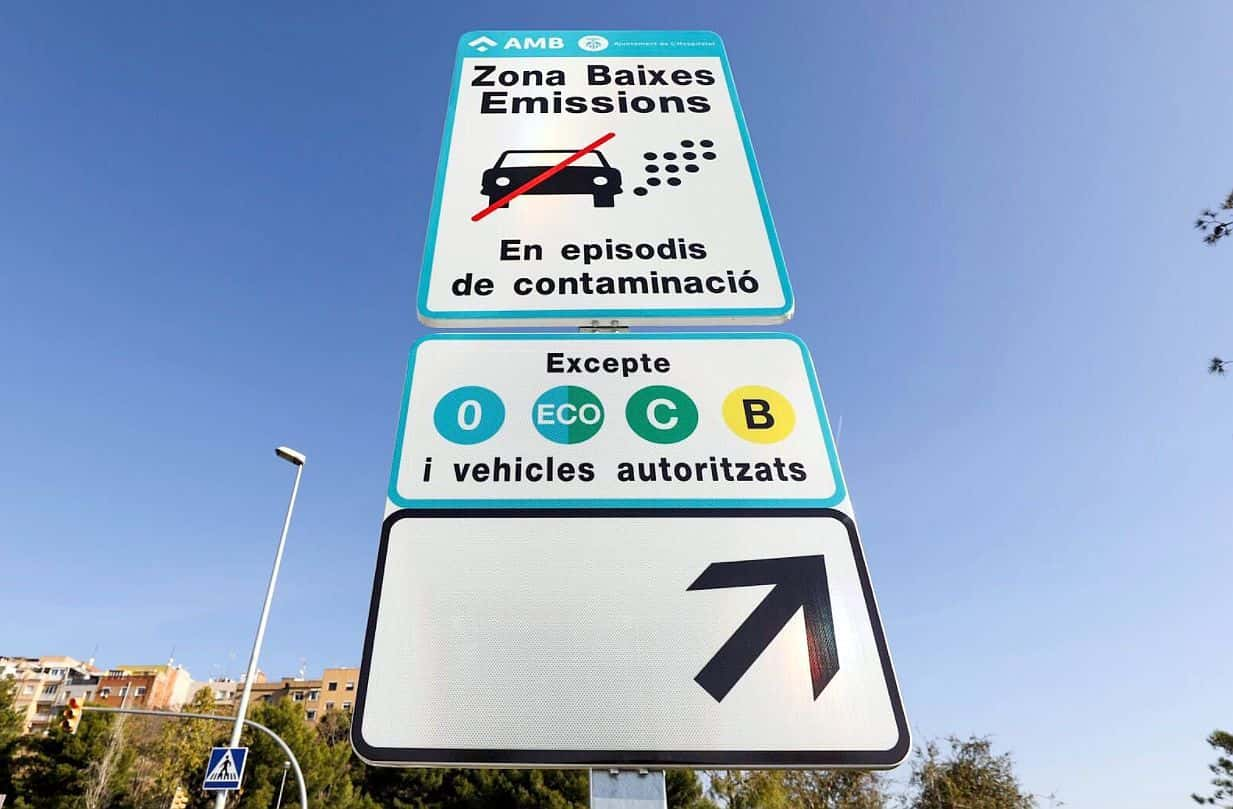Thessaloniki gets ready for its metro launch in November
The underground rapid transit lines have been under construction for almost two decades due to various project delays
 TheMayor.EU logo
TheMayor.EU logo Starting 1 January, the use of highly-polluting vehicles will be restricted even further
Following the examples of other European metropolises like London, Paris, Berlin and Brussels, Barcelona is gradually restricting polluting vehicles. Coming into force on 1 January 2020 the zones of low emissions (ZBE) are expected to improve air quality and alleviate an important public health problem.
The ZBE inside the ring roads of Barcelona cover an area of more than 95 square kilometres. This includes the city and the surrounding municipalities, plus the municipalities of Sant Adrià de Besòs and Hospitalet de Llobregat and part of the municipalities of Esplugues de Llobregat and Cornellà de Llobregat (without the industrial Zona Franca and the Vallvidrera, Tibidabo and Les Planes neighbourhoods). ZBE Rondes de Barcelona limits the circulation of the most polluting vehicles and will be progressively applied according to the environmental label.
At the start of 2019, the circulation of passenger cars and other light vehicles (L) without an environmental label during pollution peaks was restricted. As of next year, a permanent prohibition of movement within the ZBE round roads valid for passenger cars (M1), motorcycles and mopeds (L) that do not have a DGT eco tag will be introduced.
After January 2021, the permanent circulation prohibition will be extended to vans (N1), trucks (N2 and N3) and buses (M2 and M3) that do not have this tag. However, none of the restrictions apply to vehicles operated by people with reduced mobility, emergency services, performing temporary activities and having received daily authorizations and outside working hours.

Drivers of vehicles not meeting the environmental standards in Barcelona should watch out for these signs © Metropolitan Area of Barcelona
In order to facilitate drivers and make the zones more easily recognisable the local authorities have installed more than one hundred traffic signs, signalling the entry into roads where the low emission zone is active. Furthermore, to help citizens, businesses and tourists, Barcelona City Council operates a dedicated webpage with up-to-date information on how to adapt to the new rules.
The low emissions zone is only one of the measures Barcelona is implementing to promote sustainable mobility. Other examples include subsidies for the purchase of electric bicycles, renewal of the bus network with hybrid and e-buses, awareness-raising campaigns and more.

The underground rapid transit lines have been under construction for almost two decades due to various project delays

Now you can get your wine in Talence by paying directly in Bitcoin

That’s because the state has to spend money on updating the railway infrastructure rather than subsidizing the cost of the popular pass

Rethinking renewable energy sources for the urban landscape

The examples, compiled by Beyond Fossil Fuels, can inform and inspire communities and entrepreneurs that still feel trepidation at the prospect of energy transition

Now you can get your wine in Talence by paying directly in Bitcoin

The 10th European Conference on Sustainable Cities and Towns (ESCT) sets the stage for stronger cooperation between the EU, national and local level to fast track Europe's transition to climate neutrality.

At least, that’s the promise made by the mayor of Paris, Anne Hidalgo

The underground rapid transit lines have been under construction for almost two decades due to various project delays

At least, that’s the promise made by the mayor of Paris, Anne Hidalgo

Hostal de Pinós is located in the geographical centre of the autonomous region

Despite its church-y name, the district has long been known as the hangout spot for the artsy crowds

Urban dwellers across the EU are having a say in making their surroundings friendlier to people and the environment.

Forests in the EU can help green the European construction industry and bolster a continent-wide push for architectural improvements.

Apply by 10 November and do your part for the transformation of European public spaces

An interview with the Mayor of a Polish city that seeks to reinvent itself

An interview with the newly elected ICLEI President and Mayor of Malmö

A conversation with the Mayor of Lisbon about the spirit and dimensions of innovation present in the Portuguese capital














